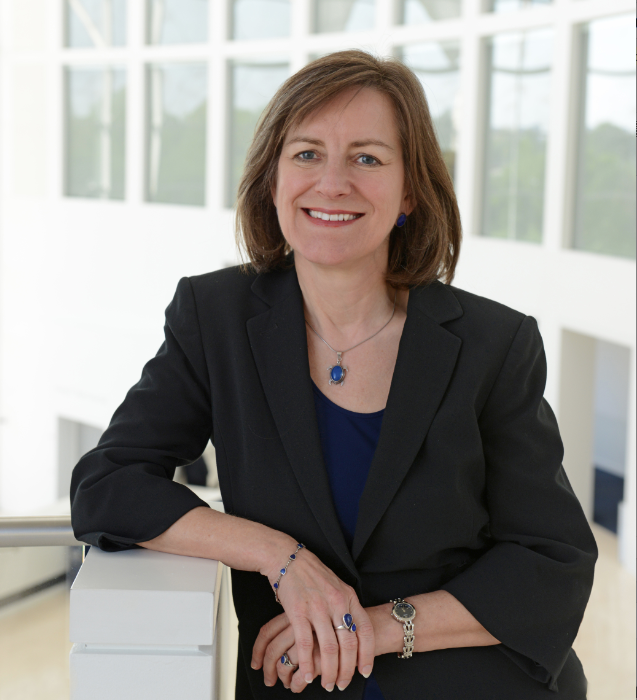Viola Gienger, U.S. Institute of Peace
At the time of this interview, Viola Gienger was a senior editor at the United States Institute of Peace in Washington, D.C.

What does the United States Institute of Peace do?
It’s one of the institutes in Washington that is both a research institute, like a think tank, but also does a lot of programming on the ground in conflict zones. So our brief is to try to prevent violent conflict and mitigate it when it happens. We work in all of the major conflict zones, Iraq, Afghanistan, Libya, Tunisia, Pakistan, [and in] Colombia we are very heavily involved in supporting the Colombian peace process.
What does your job entail?
I’m a senior editor and writer, which means that I handle all of the articles and analysis that go on to our website, except for our publications like special reports, peace briefs and so forth which are handled in a different department. But I oversee the editorial quality, editorial content, coverage of events that we have in the building [and] discussions on major issues.
How did you get your start?
My career in journalism started largely because biomedical engineering turned out to not be for me. I spent a lot of time while I was at university getting practical experience. I worked at the student newspaper, worked at the student literary magazine, and then I got an internship with my hometown newspaper.
I moved to Britain for a couple of years for personal reasons and worked at a computer magazine there for a while until I found a position at AP Dow Jones. I got a fellowship with the Knight International Journalism Fellowship program and went to Eastern Europe for six months and just learned so much and was so interested in that field I decided to stay over there and ended up seven years in Eastern Europe, living in Belarus and Poland, and four years in Bosnia. I got back into foreign affairs, national security and foreign policy coverage, and covered the State Department and Pentagon. I got to travel with the secretaries of state and secretaries of defense and with the press pool and cover some really burning issues on that beat. Then this position came up at the United States Institute of Peace, and I really couldn’t turn it down.
Is there any one project that has been the most important to you or you have felt the most proud of?
I’m very fortunate to say there have been many. One was in Bosnia. I got there a couple years after the war, and everybody there was adjusting to a new system with checks and balances, but there was still a lot of resistance to that, and the role of journalists as independent reporters and investigators was just emerging. The project that I’m most proud of there is working with local counterparts, who were really first-rate journalists themselves, as well as the leaders of the news media there. The publisher and owner of a relatively new newspaper there decided that he wanted to expand his newspaper, and we worked with him and he ultimately decided that he wanted to establish the first multi-ethnic, national newspaper in Bosnia, and he did that. Working with him and working with his team was really, really gratifying.
— Katryna Perera '16